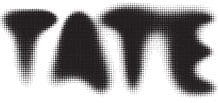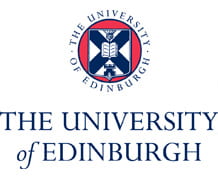What indeed constitutes ‘the past’ of feminism? How has this past been mediated and disseminated to the public? Which public, and where? How is the concept of feminist history, even if pluralised as ‘histories’, connected with debates around the oppressive presence of a hegemonic (read: Western) feminism allegedly disseminated from the centre to its endless peripheries? Does the concept of feminist histories imply a historicisation of feminism – that is, either its obsolescence or its perpetual re-inscription as ‘that moment’, associated with second-wave feminism against which every feminist initiative today must be measured? Does this same concept acknowledge ideological divisions within feminism? And can the quest for transnational feminist solidarity, increasingly an expressed demand of feminism in the age of global capital, provide new perspectives on feminist histories? As regards art in particular, how can we ensure that feminist histories in this context do not remain merely art-world histories but relate to broader configurations of feminism’s political cultures? Are indeed feminist histories only to exist in feminist research and curatorial projects or can they be part of broader art histories and social struggles? Can they perhaps just be part of biennials? Markets? Can feminist histories help us imagine the future of feminism as a connective, political struggle? If so, can this be realised through curatorial work at all at present or will such work inevitably be recuperated by the capitalist institution? Is feminist history – note the return to the singular – in crisis? And if so, is this a good or a bad thing?
These are some of the questions that we hope to address during the Edinburgh Research Workshop realised in the context of our Research Network. Researchers in the workshop will debate issues of historical specificity and transhistoricity in feminist critique. We hope that participants will bring their own questions and engage in debate. The workshop is intended to act as a think-tank where knowledge is shared and, if necessary, actively and openly debated.
WORKSHOP DETAILS
Venue: The University of Edinburgh, Department of History of Art Common Room, School of Arts, Culture and Environment 20 Chambers Street Edinburgh
Workshop leader: Angela Dimitrakaki
Research Workshop Invited Researchers: Ruth Noack, Germany, curator of Documenta 12
WORKSHOP SCHEDULE
Thursday 10 March
- Angela Dimitrakaki: An Introduction to Issues, Questions, Debates
- Sue Malvern: Curating ‘Women’s Time
- Katarzyna Kosmala: Performative Practice and Eastern European Feminist Histories
- Vicky Horne: Generations/Revivals/Histories: Writing feminist histories without ‘making feminism history’
Friday 11 March
- Ruth Noack: Feminism by Default? Recollections of Alice in Documentaland: Feminist Histories, Other Histories and Curatorial Strategies in the 21st Century – Learning from Documenta 12 [presentation and discussion with participants]
Notes, Angela Dimitrakaki (chair)
The Edinburgh workshop addressed the question of feminist histories, attempting, as the workshop title suggested, to think of the latter in relation to future moments of feminism. The workshop included four presentations and a short introduction by the workshop leader, Angela Dimitrakaki.
The presentations, along with set readings, were intended to provide (and did provide) the focal points of discussion and debate. The two readings were: Jennifer Kennedy and Liz Linden, ‘Making Ourselves Visible’, alphabet prime, (Fall 2009), pp. 16-24 and Nancy Fraser, ‘Feminism, Capitalism and the Cunning of History’, New Left Review (March-April 2009), pp. 97- 117.
The introductory paper’s key theme was the tension between what we might call art-world feminism, focusing for example on women artists’ careers and art institutions, and a feminism addressing women’s lives overall. Re-introducing Julia Kristeva’s landmark essay ‘Women’s Time’ (1979), the first paper, by Sue Malvern, addressed feminist exhibitions in the West that have attempted to engage alternative temporalities. The second paper, by Katarzyna Kosmala, presented aspects of an Eastern European art scene that indicate a growing emphasis on a critique of capitalism (the presentation included screening). The third paper, by Vicky Horne, described the dilemmas facing an emergent generation of feminist scholars who encountered feminism in the 2000s. Horne looked at a selection of ‘indicators’ with regard to how feminism and gender are conveyed to young women and men – from book covers to lifestyle magazine interviews with famous (and wealthy) women artists. Finally, keynote speaker Ruth Noack presented a paper that gave an insider’s view of Documenta 12 and discussed the strategies deployed in order to incorporate feminism into broader art historical narratives that may function canonically.
The workshop concluded with each participant suggesting the most important/urgent issue that arose in discussions, in their view, and that should be investigated further. Issues mentioned included:
- periodisation: what does it mean to feminist scholars today?
- the process of exhibition production in relation to politics
- the relationship of feminism to anti-capitalism
- what ‘generation’ means, and what it can mean, in feminism
- the process of ‘revealing’ an artwork (through feminism)
- the conflict and ambivalence between empowerment (of the self) and power (over others)
- canon and community (or, how to listen more and preach less)
- gendered professions in the art world and younger generations
- fetishised models of interpretation
- women’s solidarity in the curatorial field (as a field dominated by women)
- gendered subjectivity and knowledge production
- the problematic concept of ‘Western feminism’ which often fails to describe the more situated experiences of women in countries lumped together as ‘the West’
- trauma and the ‘gendering’ of history
Presentations, abstracts and speaker biographies
Sue Malvern, Curating ‘Women’s Time
It has been much remarked that 2007 was something of an ‘annus miralibilis’ for feminist curating, with Wack! and Global Feminisms in the States and Documenta 12 in Europe. I will argue that 1996 was also a culminating point for feminist exhibitions with Sexual Politics in California and Inside the Visible, touring the States, Europe and Australia. Likewise, a number of exhibitions in the early 1980s can be seen as summarising 1970s activism. Given these moments of focus and debate on feminism and exhibitions in c.1980, 1996 and 2007, it might seem as if feminist curatorship has inscribed itself within a cyclical trajectory. I will focus particularly on Cathy de Zegher’s Inside the Visible, often cited as the precedent for the 2007 exhibitions. Inside the Visible was structured to argue that histories of modern art needed to be reframed and understood within cyclical histories or what the project termed ‘an elliptical traverse’. Through its four-part structure, Inside the Visible displaced ‘History’ understood as a linear account of cause and effect to propose ‘histories’ which overlapped, repeated and sometimes ran parallel. Julia Kristeva’s widely celebrated essay ‘Women’s Time’, first published in English in 1981, articulates how the temporalities of female subjectivity are bound to both the cyclical repetitive time of reproduction and the monumental time of eternity. These temporalities are set against the linear time of history and language, defined as progressive, teleological and woven into the nation state and its institutions. In many ways, de Zegher’s Inside the Visible was an exemplary project of ‘Women’s Time’ and of second wave feminism. Recently Emily Apter wrote: ‘It is women’s time, again, in feminist theory’. What she meant, however, is that Kristeva’s ‘Women’s Time’ is démodé and possibly anachronistic. I will conclude my paper by speculating on what the implications for feminist curatorship might be if we abandon ‘Wome’s Time’ as a model for thinking women’s histories.
Sue Malvern is an art historian based in Reading UK. She has published extensively on feminism, contemporary art and on curatorship. In 1997 she organised an international conference at Reading titled ‘Virtuous and Vulgar Feminisms’ which debated feminist exhibitions held in 1996 with their curators.
Katarzyna Kosmala, Performative Practice and Eastern European Feminist Histories
The socio-economic and ideological transformation of Central and Eastern Europe has accelerated the processes of re-writing ‘identity’ scripts in the region. A new performative turn can be observed in art production, theory advancement and curatorial initiatives – an approach involving geographies of shifting borders and appearing to coalesce around a feminist critique of dominant politics without addressing it by name. I would argue that such initiatives enact what sociologist Chandra Mohanty refers to as ‘feminism without borders’, a network-based movement raising social justice issues in relation to globalisation and neo-liberalism. A lot can be said about this performative turn: it may involve a performance of the self; it may result in a sense of being outside the law of mainstream cultural production; and, feminist performance strategies of the 1970s are echoed in new projects such as Public Preparation, questioning contemporary art practice, and more importantly, the cultural apathy and apolitical attitude we often breathe in this new Europe.
Dr Katarzyna Kosmala is Reader at the Centre for Contemporary European Studies, University of the West of Scotland and Visiting Research Fellow at GEXcel, Institute of Thematic Gender Studies, Linköping University & Örebro University, Sweden, a curator and freelance art writer. She researches and writes in English and her native Polish on aspects of construction and representation of gender and identity politics in contemporary (visual) culture, predominantly in the context of Central Eastern Europe. She has published in Third Text, N.Paradoxa, Culture and Organization, International Journal of the Arts in Society, Opcje, Obieg, Sekcja Magazyn Artystyczny, Arts Margins. Currently involved in the AHRC-funded project Translating East European & Russian Cultures: Exchange and Communication within a Multidisciplinary and Multicultural Area Studies Context (in collaboration with the University of Glasgow). She is now working on her book Imagining Masculinities (Taylor & Francis).
Vicky Horne, Generations/Revivals/Histories: Writing feminist histories without ‘making feminism history’
My paper looks at the recent revival of interest in feminism and its histories, and assess whether certain institutionalised narratives run the risk of relegating feminism to the distant past for younger men and women. In considering developments from various contexts, I want to expand the critical discussion around issues of temporality and narrativity within feminist history and attend to how we can delineate between feminism as a historical moment and as an ongoing struggle.
Vicky Horne is a PhD candidate at The University of Edinburgh, writing on feminist art histories under the supervision of Angela Dimitrakaki. She completed her MA at the University of Manchester and wrote her dissertation on the Lynn Hershman/Roberta Breitmore archive held at the Whitworth Art Gallery.
Ruth Noack, Feminism by Default? Recollections of Alice in Documentaland
Documenta 12 did not put much effort into self-historisation. At the time, we attempted to dissolve all formats of representation into process-oriented configurations. Claiming that the exhibition itself was a medium, emphasis was put on the ephemerality of the event, leaving the field of critical evaluation wide open to others. Similarily, our feminism was one of doing rather than claiming, arising out of experiences and convictions formed since the middle of the 1980s in primarily non- mainstream contexts. Almost four years after the exhibition, it is time to reevaluate.
Ruth Noack is a feminist art historian, critic, lecturer on contemporary art, and exhibition maker. She was the curator of Documenta 12 in 2007. Currently, she is writing a book on Sanja Ivekovic’s work ‘Triangle’ (1979) for Afterall, and working on an exhibition called ‘Sleeping with a vengeance, dreaming of a life’. She lives with her two children in Berlin. www.goethe.de/kue/bku/kur/kur/mr/noa/deindex.htm
List of workshop participants
- Alexandra Antoniadou, University of Edinburgh
- Leilani Alontaga , University of Edinburgh
- Nicky Bird, Glasgow University
- Jonathan Blackwood, University of Dundee Matt Carter, University of Edinburgh
- Angela Dimitrakaki, University of Edinburgh
- Reesa Greenberg, Concordia University
- Jenny Gypaki, University of Edinburgh
- Vicky Horne, University of Edinburgh
- Kati Kivimaa, Estonian Academy of Arts
- Katarzyna Kosmala, University of West of Scotland Sue Malvern, University of Reading
- Ruth Noack, independent curator
- Irene Noy, University of Edinburgh
- Kirsten Lloyd, Stills/University of Edinburgh
- Lara Perry, University of Brighton (Thursday)
- Nancy Proctor, Smithsonian Institute
- Jessica Sjoholm Skrubbe, University of Stockholm
- Tamara Trodd, University of Edinburgh (Thursday)










Leave a Reply